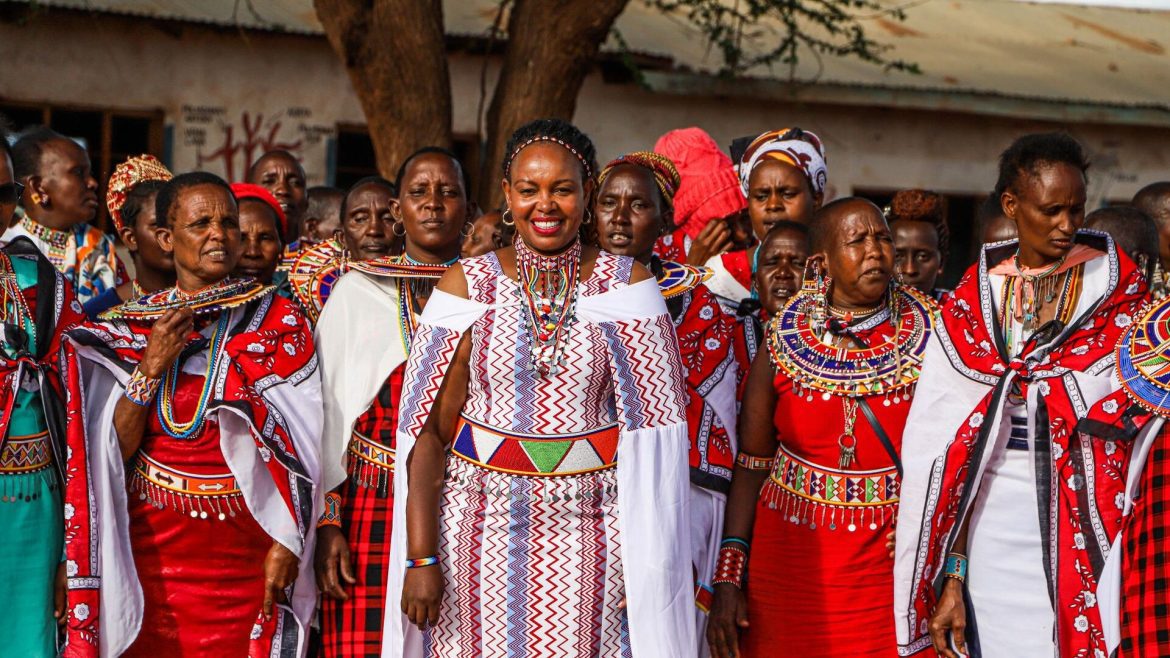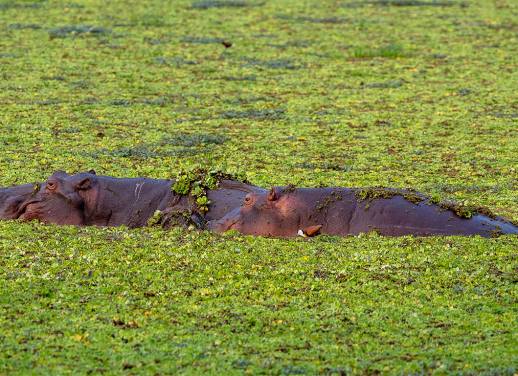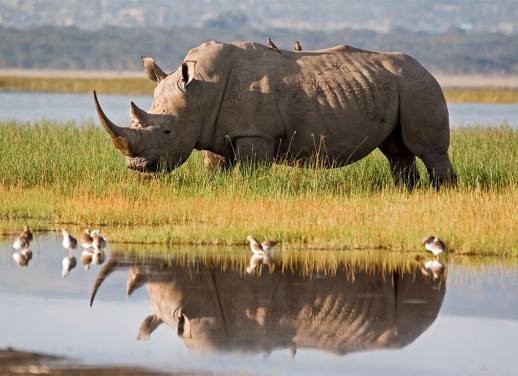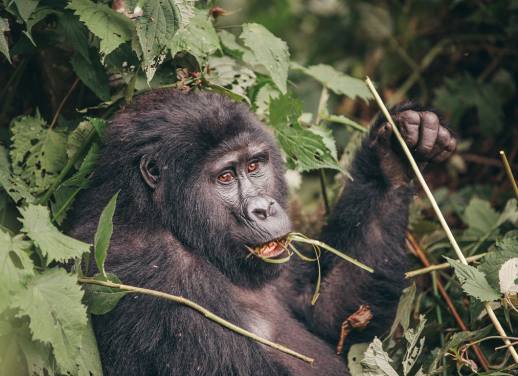For many rural communities in Kenya, patriarchal norms are embedded in Maasai culture. But thanks to Intrepid Foundation partner Patinaai Osim, founded by one woman determined to make a difference, positive change is rippling through generations.
The notion of the butterfly effect rests on the idea that all things are interconnected and that one small, seemingly insignificant move (like the flap of a butterfly’s wings) could, in theory, go on to create huge change (like a windstorm). A domino effect that’s not totally dissimilar to what Semerian Sankori has tipped off in Kenya.
In 2010, Semerian founded Patinaai Osim, an organisation that supports rural Kenyan communities by providing women and children with education, reproductive healthcare and livelihood opportunities.
Since officially starting operations in 2019, they’ve reached hundreds of women, providing workshops, menstrual hygiene kits and livelihood programs. Their latest pilot program, which has proven a huge success, provides training and ongoing employment for women facing hardship. They’ve also recently helped refurbish a school and provided over 30 scholarships for children who otherwise couldn’t attain an education.
When I connected with Semerian over video call to talk about all things Patinaai Osim, I knew we had plenty of ground to cover. So, we started from the beginning.
The start of big things
Semerian tells me about her childhood in a small Maasai village in rural Kenya. ‘I was one of ten children,’ she laughs. ‘I’m the second born, so you can imagine the responsibilities I had growing up.’
She tells me how, quite extraordinarily, both of her parents had received an education – something almost unheard of in Maasai communities, particularly for women, in the early 60s.
She points out that her parents’ unconventional upbringing set Semerian and her siblings on a different trajectory from the other kids in their community. Because, just like her parents, they were also sent to school.
In grade three, Semerian and her older sister were transferred to the same boarding school her mother had attended, some 120 km out of her village. In these formative years, she got her first taste of life outside her small village. The way she explains it, it’s like the world seemed bigger when she moved away and, somehow, so did the issues the Maasai women in her village back home were facing.
I do what I do because of the things that I’ve seen
‘We would come back during the [school] holidays to find our small cousins had been married off. Some of them were dropping out of school because of pregnancy,’ she recalls. ‘And it was normal – it was normal for men, including my uncles, to beat their wives.’
‘I do what I do because of the things that I’ve seen, not just in my family, but everywhere,’ she tells me.
She speaks fondly of how her mum was one of few women of her generation to get an education and how strong and free-willed she was. I couldn’t help but draw connections between the women Semerian has set out to support and her own maternal influence growing up.
‘Did your mum play a role in inspiring your work?’ I ask.
She responds without a moment of hesitation. ‘My mum actually – and this is one thing I want to come out clear, very clear – my mum played such an important role in our life that she just showed us if you’re determined, you can do anything. She taught us that we could be independent and do things for ourselves.’
A determination to do more
Semerian set up Patinaai Osim with a holistic approach to community well-being, focusing on four pillars for change: education, sexual and reproductive health, environmental sustainability and sustainable livelihood opportunities.
The significant issues that rural communities in Kenya face – drought, loss of livelihood, lack of education and women’s rights are, in some way, all interlinked. And so are Patinaai Osim’s four pillars. But the way Semerian puts it – education is the key.
Granting children and even adults education and skills training gives them access to income, better sustainable agriculture practices and better knowledge of their own physical, mental and reproductive health. Better educational opportunities could be the symbolic butterfly for rural communities, but there’s one problem.
Some of the schools don’t have enough teachers, and some of them don’t have water. They don’t even have a fence – so you can find sheep entering classrooms.
‘The challenge right now is that the schools are not equipped because the government forgets rural schools and rural learners,’ Semerian explains. ‘The schools here are in a very, very bad state. None of the schools have a library and no learning materials – particularly modern learning materials, like computers. Some of the schools don’t have enough teachers, and some of them don’t have water. They don’t even have a fence – so you can find sheep entering classrooms… donkeys, too. So that is a big challenge – this kind of environment isn’t good for students or teachers’
‘The local Intrepid team, based in Kenya, volunteered their time and renovated three classrooms for us in one of the schools in December,’ she says.
‘You should have seen the excitement in January when schools opened because [the children] came into a class with windows,’ Semerian pauses, smiling softly. ‘There were no windows, there was no glass [before]. So, not the wind, but dust would just come and get into their faces, books and everything. Now they have windows, they have a door.’
Positive change for generations
Within the last 12 months, Semerian has created a pilot program focusing on sustainable livelihoods. The successful program runs skills training from Monday to Friday for 15 Masaai women. They learn hard skills like tailoring and sewing and soft skills like money management, mental health awareness and communication.
She explains how the first cohort of women, aged between 19 and 72, seized the opportunity to join the program and build a different future. Many of the women’s husbands have passed away, leaving them the sole breadwinners – running their families and farmsteads on their own. Others were forced to drop out of school due to early pregnancy. They all joined the pilot program determined to make change – breaking the cycle of poverty and inequality for themselves and their families.
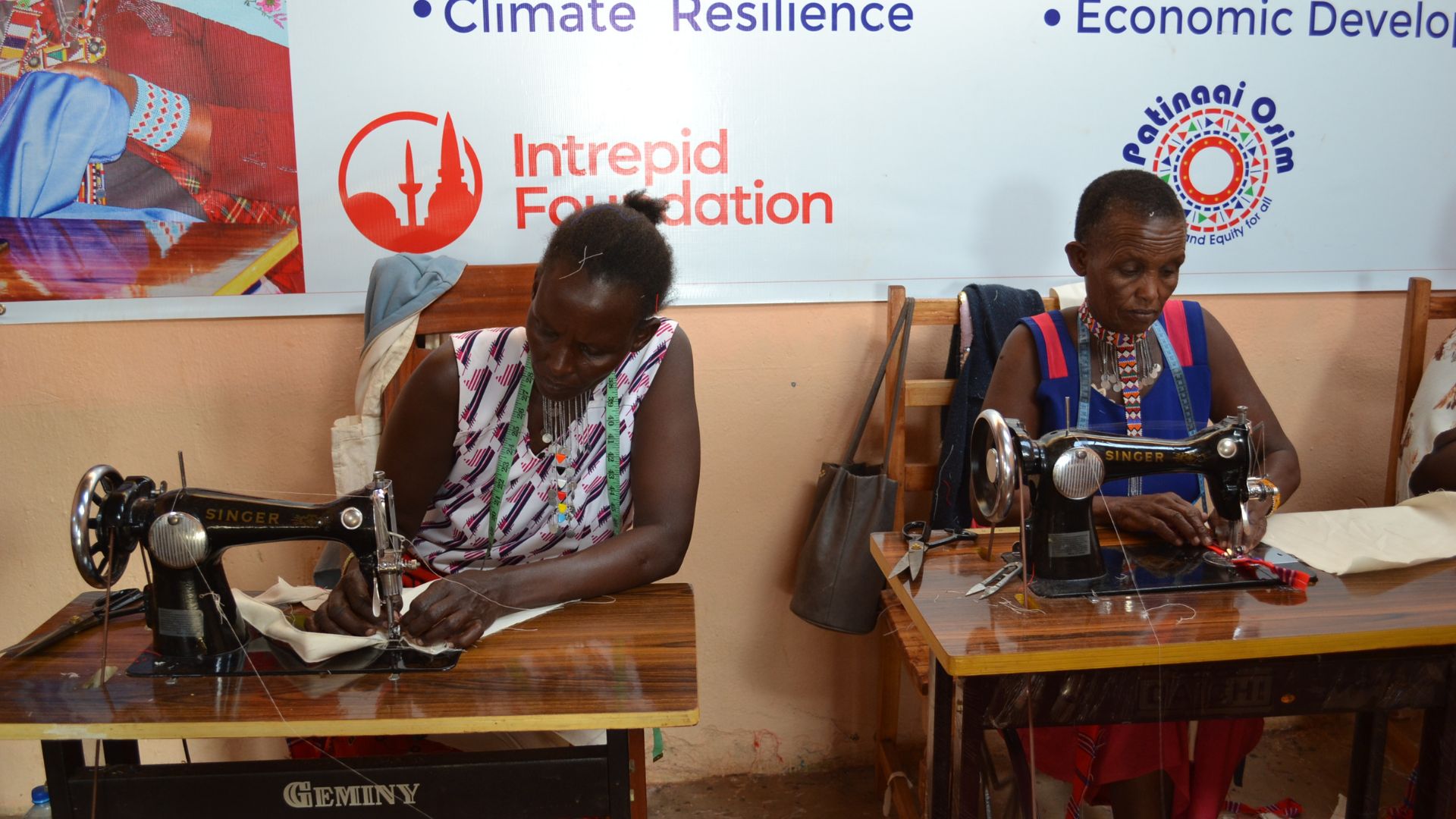
‘The Intrepid Foundation has started it for us. They’ve bought us the [sewing] machines and managed to renovate the space the community gave us,’ she says. ‘We have 10 [sewing] machines now.’
She tells me it’s not just about giving these women a skill. Like all things Patinaai Osim, the program takes a holistic approach. Program participants are provided training, encouraged to develop the skills they already have (like beading) and employed by Patinaai Osim to produce clothes and other craft goods. It’s about fully supporting their success, helping them grow and providing ongoing income and employment opportunities.
‘We don’t want to have cohort after cohort after cohort. And then we end up having a hundred women that have the skill but have no work,’ she says.
She’s determined to find business opportunities that provide ongoing jobs and a feeling of purpose for the women. So far, she’s secured contracts creating handmade tote bags for Intrepid (handed out to all travellers on their Africa trips) and producing children’s uniforms for local schools.
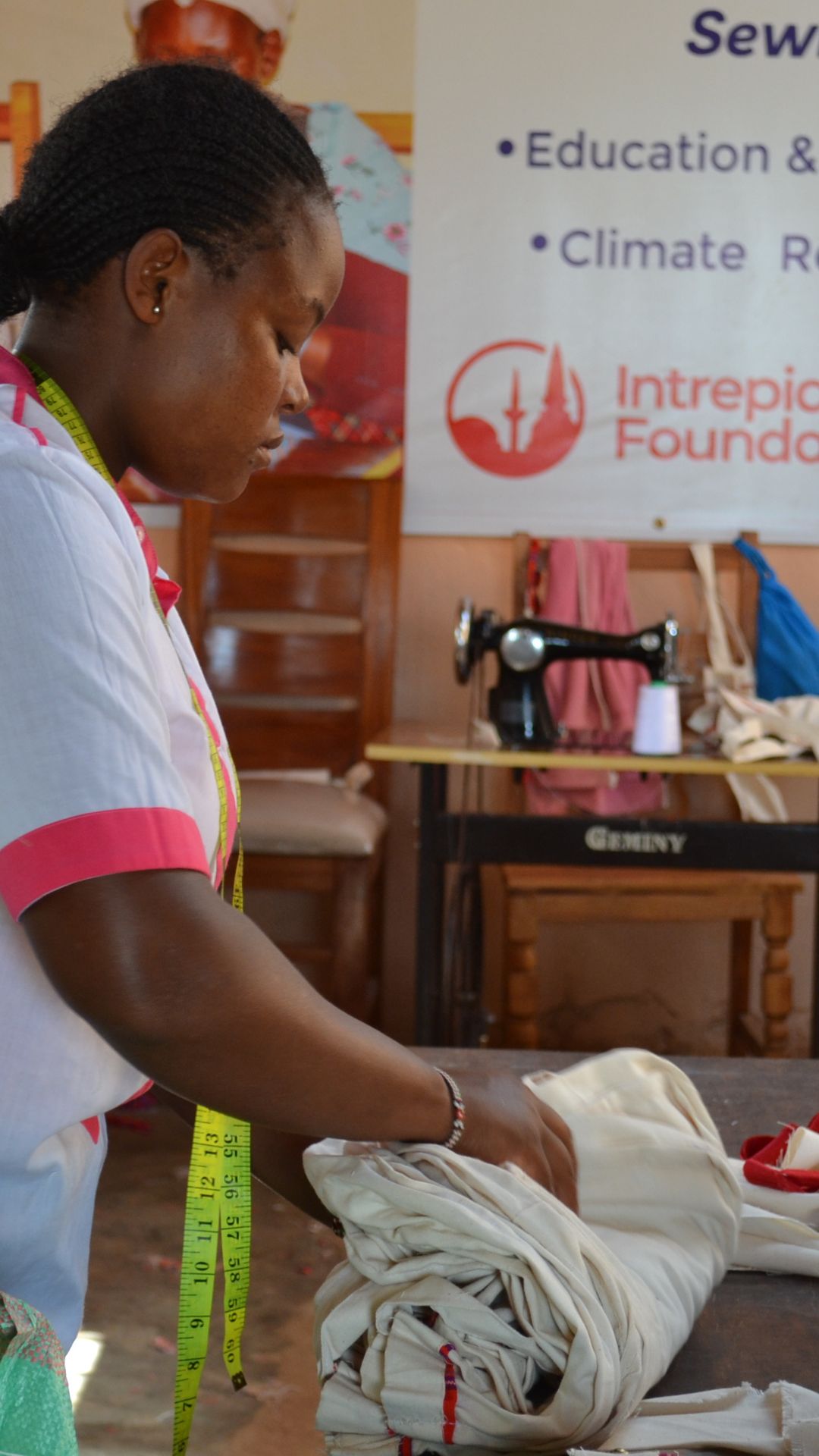
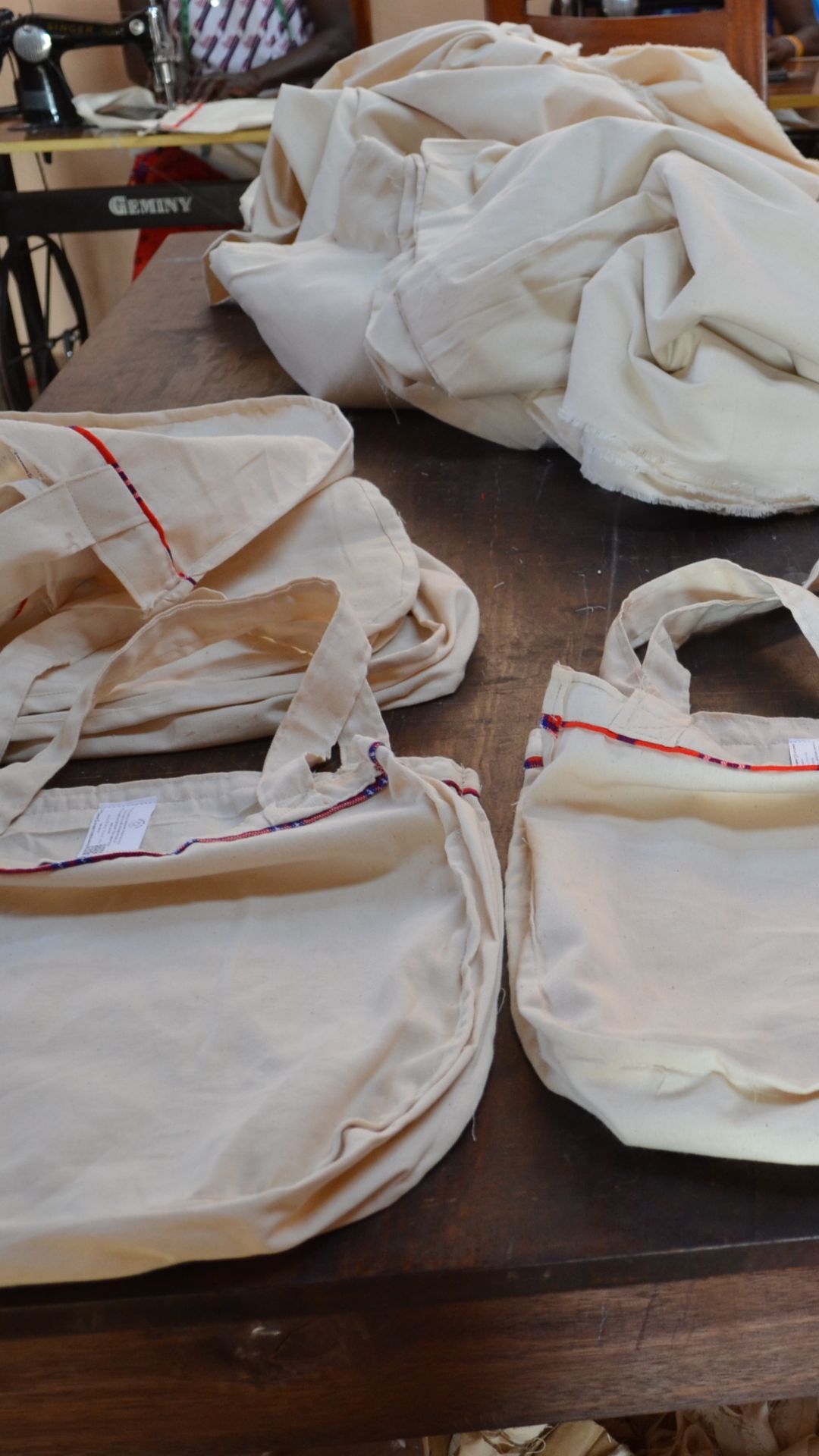
‘I’m very optimistic that this program will grow to be self-sustaining, and that is the plan for it to be self-sustaining.’
Since starting with the program, Semerian tells me how it’s more than the women’s sewing skills that have improved – their confidence has also grown.
‘They know how to speak to people now. If you come, they’re not shy. They’ll speak to you, and they’ll speak in their language, and then someone will translate. And before, they would hardly look you in the eye,’ she explains.
‘You can see as well in their children; their children are going to school now, and they have little red bags that their mothers made for them,’ Semerian smiles, and so do I.
She has grand plans to reach even more people, hoping to set up the centre to cater to more than 50 women – training, educating and employing each.
Semerian’s story highlights how positive change can create waves and touch the lives of many when given the opportunity – just like the flap of a butterfly’s wings can create a windstorm. These women and their own children, with their tiny red backpacks draped over their shoulders, are the next generation of that change.
You can support Semerian’s mission and be part of this story by donating to Patinaai Osim via The Intrepid Foundation. Intrepid covers all of the admin fees, so you can give knowing that 100% of your donation is going where it’s needed most.

